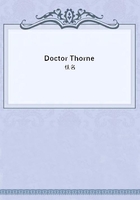
第75章
It's hard to say in these days what is wrong and what is not. Now, there's Reddypalm, the publican, the man who has the Brown Bear. Well, I was there, of course: he's a voter, and if any man in Barchester ought to feel himself bound to vote for a friend of the duke's he ought. Now, I was so thirsty when I was in that man's house, that I was dying for a glass of beer; but for the life of me I didn't dare order one.'
'Why not?' said Frank, whose mind was only just beginning to be enlightened by the great doctrine of purity of election as practised in English provincial towns.
'Oh, Closerstil had some fellow looking at me; why, I can't walk down that town without having my very steps counted. I like sharp fighting myself, but I never go so sharp as that.'
'Nevertheless I got Bagley's vote,' said Frank, persisting in praise of his own electioneering prowess; 'and you may be sure of this, Mr Nearthewinde, none of Closerstil's men were looking at me when I got it.'
'Who'll pay for the bonnets, Frank?' said George.
'Oh, I'll pay for them if Moffat won't. I think I shall keep an account there; they seem to have good gloves and those sort of things.'
'Very good, I have no doubt,' said George.
'I suppose your lordship will be in town soon after the meeting of Parliament?' said the bishop, questioning the earl.
'Oh! yes; I suppose I must be there. I am never allowed to remain very long in the quiet. It is a great nuisance; but it is too late to think of that now.'
'Men in high places, my lord, never were, and never will be, allowed to consider themselves. They burn their torches not in their own behalf,' said the bishop, thinking, perhaps, as much of himself as he did of his noble friend. 'Rest and quiet are the comforts of those who have been content to remain in obscurity.'
'Perhaps so,' said the earl, finishing his glass of claret with an air of virtuous resignation. 'Perhaps so.' His own martyrdom, however, had not been severe, for the rest and quiet of home had never been peculiarly satisfactory to his tastes. Soon after this they went to the ladies.
It was some little time before Frank could find an opportunity of recommencing his allotted task with Miss Dunstable. She got into conversation with the bishop and with some other people, and, except that he took her teacup and nearly managed to squeeze one of her fingers as she did so, he made very little further progress till towards the close of the evening.
At last he found her so nearly alone as to admit of his speaking to her in a low confidential voice.
'Have you managed that matter with my aunt?'
'What matter?' said Miss Dunstable; and her voice was not low, nor particularly confidential.
'About those three or four gentlemen whom you wish to invite here?'
'Oh! my attendant knights! no, indeed; you gave me such very slight hope of success; besides, you said something about my not wanting them.'
'Yes I did; I really think they'd be quite unnecessary. If you should want any one to defend you--'
'At these coming elections, for instance.'
'Then, or at any other time, there are plenty here who will be ready to stand up for you.'
'Plenty! I don't want plenty: one good lance in the olden days was always worth more than a score of ordinary men-at-arms.'
'But you talked about three or four.'
'Yes; but then you see, Mr Gresham, I have never yet found the one good lance--at least, not good enough to suit my ideas of true prowess.'
What could Frank do but declare that he was ready to lay his own in rest, now and always in her behalf?
His aunt had been quite angry with him, and had thought that he turned her into ridicule, when he spoke of making an offer to her guest that very evening; and yet here he was so placed that he had hardly an alternative. Let his inward resolution to abjure the heiress be ever so strong, he was now in a position which allowed him no choice in the matter. Even Mary Thorne could hardly have blamed him for saying, that so far as his own prowess went, it was quite at Miss Dunstable's service. Had Mary been looking on, she perhaps, might have thought that he could have done so with less of that look of devotion which he threw into his eyes.
'Well, Mr Gresham, that's very civil--very civil indeed,' said Miss Dunstable. 'Upon my word, if a lady wanted a true knight she might do worse than trust to you. Only I fear that your courage is of so exalted a nature that you would be ever ready to do battle for any beauty that might be in distress--or, indeed, who might not. You could never confine your valour to the protection of one maiden.'